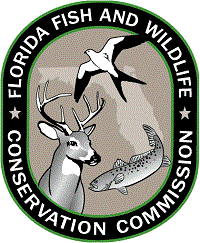Florida Youth Conservation Centers on a Roll; Join the Momentum

Momentum. The Florida Youth Conservation Centers Network (FYCCN), whose goal is to create the next generation that cares about fish and wildlife conservation, is on a roll. This bold initiative, sponsored by the Florida Fish and Wildlife Conservation Commission (FWC), is dedicated to providing a statewide network of sustainable places where youth and their families can participate in outdoor activities that inspire conservation stewardship and a love of our fabulous natural resources.
The FYCCN is about helping kids develop a passion for nature and the outdoors. At a time when participation in traditional outdoor activities is on the decline and obesity and other health problems, including attention deficit disorder, diabetes, asthma and heart disease, are leading to worries that this generation may be the first to have a shorter life expectancy than their parents, the FYCCN offers a bright ray of hope.
Thanks to many friends – beneficent donors, excited partners, passionate volunteers and outstanding leadership – what was a bold idea a few years ago is now a reality.
One of those friends is famed marine wildlife artist and conservationist Guy Harvey. Steve Stock, president of Guy Harvey Inc. and the Guy Harvey Ocean Foundation, recently presented a check for $50,000 to the Wildlife Foundation of Florida to help fund FYCCN saltwater fishing camps that infuse in youth conservation ethics and a sense of stewardship related to the sport of fishing.
“We are proud and excited to partner with FYCCN in furtherance of our marine educational programs and goals,” said Dr. Harvey. “This partnership will help us to teach and develop the next generation of responsible Florida sportsmen and women.”
With help such as this, the FYCCN is expanding its network of youth centers to teach kids basic principles of conservation and outdoor ethics. They also stress traditional outdoor recreational skills, including fishing, shooting sports, boating, wildlife viewing and more. Visit FYCCN.org for details.
The Wildlife Foundation of Florida, the official public-support organization for the FWC, is a major partner in this effort. Its striving to collect donations (WildlifeFoundationofFlorida.com/FYCC) and help coordinate sponsors has played a significant role in the rapid evolution of the FYCCN.
The FYCCN is a true “network.” The effectiveness of more than 225 statewide partners working together is creating the base necessary to make a difference in the lives of Florida’s youth. Parks and recreation departments, nature centers, volunteer groups, clubs and environmental organizations, private landowners, sporting goods stores and people who want to help with programming all are contributing to the cause.
By implementing the network using a hub-and-spoke structure, the FYCCN includes “Wild Outdoors” centers that offer deep-woods experiences, as well as “Near Outdoor” sites, which offer experiences closer to children in their everyday lives.
The “Wild Outdoors” experiences include traditional outdoor activities like fishing, canoeing, shooting sports, hiking, camping and deep-woods orienteering. The “Near Outdoor” experiences may include an urban fishing pond or pier, archery in the schools, a local birding competition or a habitat program being taught in the schools.
The key to its successful implementation is its effective partnering with local, urban-based programs and assisting them in offering traditional outdoor pursuits connected with conservation. Making these connections – with existing, successful youth programs, school systems, clubs, churches and youth-oriented groups interested in traditional outdoor pursuits and conservation – provides instant access to kids.
“Many places in Florida offer youth the opportunity to go fishing, hunting, hiking, boating and wildlife viewing,” said FYCCN director Rae Waddell. “We want to work with these sites to expand their reach through the knowledge, training and resources that are available through FYCCN.”
Waddell’s leadership was recognized by the Florida Wildlife Federation, which awarded her its Conservation Communicator of the Year Award for 2013. Waddell was honored for her success in leading the effort to reconnect Florida’s children with traditional outdoor activities. She has been with the FWC for over 20 years and has worked tirelessly to provide youth with the education and guidance they need to engage in the great outdoors and safely share experiences that inspire lifelong support for fish and wildlife conservation.
Waddell’s leadership has helped make the FYCCN a formidable tool in the fight against too much time spent indoors with electronic media and too little time spent outdoors with nature. But there is much more to be done, and they need your help to do it. They need:
- Businesses and organizations to become partners.
- Property owners and manufacturers to provide sites and resources.
- Volunteers of every age and ability.
- Fundraising support and financial contributions.
Join them in providing youngsters the education and guidance they need to safely engage in traditional outdoor activities. Only in that way will they learn to love nature and the great outdoors and be willing to accept stewardship of our precious outdoor heritage in the future. They will become the next generation that cares!

